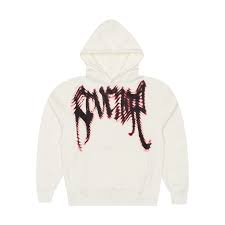MERTRA Clothing:
MERTRA Clothing: Where Fashion Meets Purpose
In today’s fashion landscape, the call for authenticity, sustainability, and meaningful design has never been louder. MERTRA Clothing answers this call by offering a fresh perspective on what modern apparel should be: stylish, durable, and responsibly made. This brand is more than just a clothing line — it is a lifestyle choice for consumers who value quality, ethics, and timeless aesthetics. Here’s a deep dive into the story, values, and vision that make MERTRA Clothing a standout in the apparel industry.
Origins and Brand Story
MERTRA Clothing was born from a desire to challenge the fast-fashion culture that has long dominated the industry. The founders—designers, environmentalists, and business experts—recognized the urgent need for change in how clothing is made and consumed. They envisioned a brand that respects the planet, supports fair labor, and creates garments designed to last.
From its inception, MERTRA’s philosophy centered on intentionality: every design choice, fabric selection, and manufacturing decision is made with a commitment to reducing waste and empowering communities. The brand aims to inspire consumers to think about the story behind what they wear and to embrace a more thoughtful way of dressing.
The MERTRA Design Ethos
MERTRA Clothing’s design ethos balances minimalist elegance with practical wearability. The collections are crafted to transcend seasons and trends, emphasizing classic cuts, clean lines, and subtle details that elevate each piece without overwhelming.
The brand takes inspiration from global urban culture, natural landscapes, and contemporary art, blending these influences into garments that feel both sophisticated and approachable. Whether it’s a sharply tailored jacket, a soft organic cotton tee, or relaxed trousers with innovative stretch, each item reflects a dedication to craftsmanship and wearer comfort.
Versatility is key: MERTRA pieces are created to fit seamlessly into various lifestyles, whether worn for work, leisure, or social occasions. This adaptability encourages longer use, combating the throwaway mentality prevalent in today’s fashion.
Sustainability as a Core Principle
Sustainability is not an afterthought for MERTRA Clothing—it is the foundation upon which the brand operates. The company integrates eco-conscious strategies across every aspect of its business, setting a high standard in ethical fashion.
Materials Matter: MERTRA prioritizes sourcing materials that minimize environmental harm. Organic cotton, recycled polyester, hemp, and Tencel form the backbone of their fabric choices. These materials reduce water consumption, chemical pesticides, and greenhouse gas emissions compared to conventional alternatives.
Ethical Production: The brand works exclusively with suppliers who meet strict labor and environmental standards. This includes ensuring fair wages, safe working conditions, and respect for workers’ rights. MERTRA maintains close relationships with its factories, promoting transparency and continuous improvement.
Innovative Processes: From water-efficient dyeing to zero-waste cutting techniques, MERTRA employs modern methods to reduce its ecological footprint. Even packaging is designed to be biodegradable or recyclable, completing the cycle of sustainability.
Embracing Innovation for a Better Future
MERTRA Clothing invests heavily in innovation, recognizing that sustainability and style can be enhanced through technology. The brand experiments with new fabric blends that improve durability and comfort while being easier to recycle.
Advanced treatments that improve moisture management, UV protection, and odor resistance are integrated into select collections, addressing the needs of active, health-conscious consumers. This synergy of function and fashion positions MERTRA as a leader in the growing market for performance-sustainable apparel.
Additionally, MERTRA is exploring digital tools like blockchain to provide full transparency of its supply chain. This technology allows customers to trace the origins of their garments, increasing trust and awareness about the brand’s commitment to ethical practices.
Community and Culture: Building More Than a Brand
MERTRA Clothing’s success is deeply connected to its active and engaged community. The brand nurtures a culture of inclusivity, creativity, and shared responsibility through collaborations, events, and digital platforms.
MERTRA partners with artists, environmental activists, and emerging designers who share its vision, amplifying diverse voices and fresh perspectives. Social media campaigns highlight real customers and their stories, creating a genuine connection between the brand and its audience.
The brand also hosts workshops and panel discussions focused on sustainability education and ethical fashion, fostering dialogue and empowering consumers to make informed choices. This community-building effort reflects MERTRA’s belief that meaningful change requires collective action.
Market Position and Growth
MERTRA Clothing started as an online-only brand, gaining traction among eco-conscious shoppers seeking alternatives to mass-produced apparel. Its focus on quality, transparency, and style quickly resonated, leading to expansion into physical retail spaces and partnerships with select boutiques worldwide.
The brand appeals especially to Millennials and Gen Z consumers who prioritize sustainability but refuse to compromise on fashion-forward design. MERTRA’s clean, contemporary aesthetic paired with clear ethical credentials distinguishes it in a crowded market.
As the brand grows, it maintains a commitment to small-batch production and limited releases to prevent overproduction. This approach supports MERTRA’s mission to slow down fashion consumption and reduce waste.
Challenges and the Road Ahead
Like many sustainable brands, MERTRA faces the challenge of balancing higher production costs with accessible pricing. The company continues to seek efficiencies and innovative solutions that can make ethical fashion more affordable without diluting its values.
Looking forward, MERTRA aims to broaden its product offering, including more gender-neutral styles and adaptive clothing for people with disabilities. The brand is also developing a circular fashion program, encouraging customers to return used garments for refurbishment or recycling.
Education remains a priority—MERTRA plans to deepen its consumer engagement with immersive storytelling and transparent reporting on environmental impact.
Conclusion
MERTRA Clothing is more than just a fashion label; it is a movement toward a more responsible and conscious industry. By marrying elegant design with uncompromising sustainability, MERTRA invites consumers to rethink their relationship with fashion.
In a world overwhelmed by fast fashion and environmental concerns, MERTRA offers hope and an inspiring alternative—clothing that is thoughtful, durable, and deeply connected to the wellbeing of people and planet.
For those who seek meaningful style that stands the test of time, MERTRA Clothing represents a future where fashion truly meets purpose.
